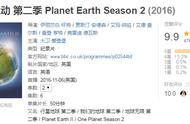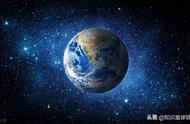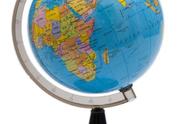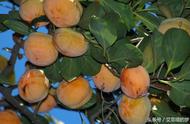Our planet is amazing.
我们的地球太棒了。
Orbiting around the sun at a whopping speed of 107,218 km/h, that's pretty fast for such a big body.
以107218公里/小时的速度围绕着地球公转,这对于地球这么庞大的身躯来说是相当快了。
And though earth can't step on a scale, NASA calculates its mass at 5,972,190,000,000,000,000,000,000 kg.
尽管不能用任何仪器测量地球的质量,但美国宇航局计算出它的质量为5721 9000 0000 0000 0000 0000千克。
However, our planet is continually gaining and losing mass.
然而,我们的地球仍在不断增加和减少质量。
We take on an estimated 40,000 tonnes of space dust that the earth's gravity pulls in like a giant vacuum.
据估计,地球引力像一个巨大的真空吸尘器一样吸进了4万吨太空尘埃。
This dust is vestiges of our solar system, broken up asteroids and the matter that never turned into planets.
这些尘埃是我们太阳系的遗迹,是破碎的小行星和从未变成行星的物质。
But we lose mass largely due to gases.
但是我们主要是由于气体而失去质量。
Gases like hydrogen are so light that they are escaping through the atmosphere at a rate of 3 kg per second.
像氢这样非常轻的气体,它们会以每秒3千克的速度逸出大气层。
That's 95,000 tonnes a year.
一年就是9.5万吨。
But what about us?
那我们人类会对地球质量有影响吗?
The human population in 1987 was 5 billion and it is now estimated at 7.6 billion!
1987年的总人口是50亿,而现在估计有76亿!
But do our bodies and all the structures we put on the surface of the earth affect the mass of the planet?
但是我们的身体和我们放在地球表面的所有物质结构会对地球的质量有影响吗?
No, because we are actually made up of existing matter on the planet.
不会,因为我们实际上是由地球上现存的物质组成的。
That matter is atoms and we've been able to identify 118 different kinds of elements but what makes up 90% of us is just 3 elements: oxygen, carbon, and hydrogen.
那种物质就是原子,我们已经发现了118种不同的元素,但我们90%的构成元素只有3种:氧、碳和氢
Two of those elements make up the liquid vital for life: water.
其中两种元素构成了对生命至关重要的液体:水。
Our oceans cover 70% of the planet.
地球的70%是被海水覆盖的。
And its deepest depth the Mariana Trench is measured at almost 11,000m.
海洋的最深处,马里亚纳海沟,约为11000米。
For context, if you put the base of Mount Everest at the bottom of the Trench, the peak would still be 1.6km underwater.
举个例子,如果你把珠穆朗玛峰的底部放在海沟沟底,那么峰顶仍在水下的1.6千米处。
Our oceans are still largely a mystery, with only 5% of it explored.
海洋对我们来说依旧神秘,我们只探索了它的5%。
With more knowledge, we could better understand how the Deep-Sea Octopus had the longest egg-brooding period ever recorded.
有了更多的知识,我们就能更好地理解深海章鱼是如何拥有有史以来最长的产卵期的。
This committed mama located in Monterey Bay wrapped her arms around her 160 plus eggs, protecting them for 53 months without eating the entire time.
这只住在蒙特利湾的章鱼妈妈用双臂抱着她的160多个鸡蛋,保护了它们53个月,整个过程都没有吃过东西。
How she survived so long is still a mystery.
她为什么可以存活这么长时间仍然是个谜。
Though it may seem obvious to you that animals like your cats and dogs have unique personalities, several scientists had long rejected the idea.
虽然你可能觉得像猫和狗这样的动物有独特的个性很正常,但一些科学家长期以来一直反对这一观点。
Now there are confirmed surveys to measure the unique personalities of chimps which are a product of natural selection.
现在已经有了确切的调查去判定黑猩猩的独特性格,这是自然选择的产物。
All of this action occurs on the earth's crust where volume only makes up 1% of the earth.
所有的这些都发生在地壳上,而地壳的体积只占地球的1%。
There's a lot of life on our amazing pale blue dot.














